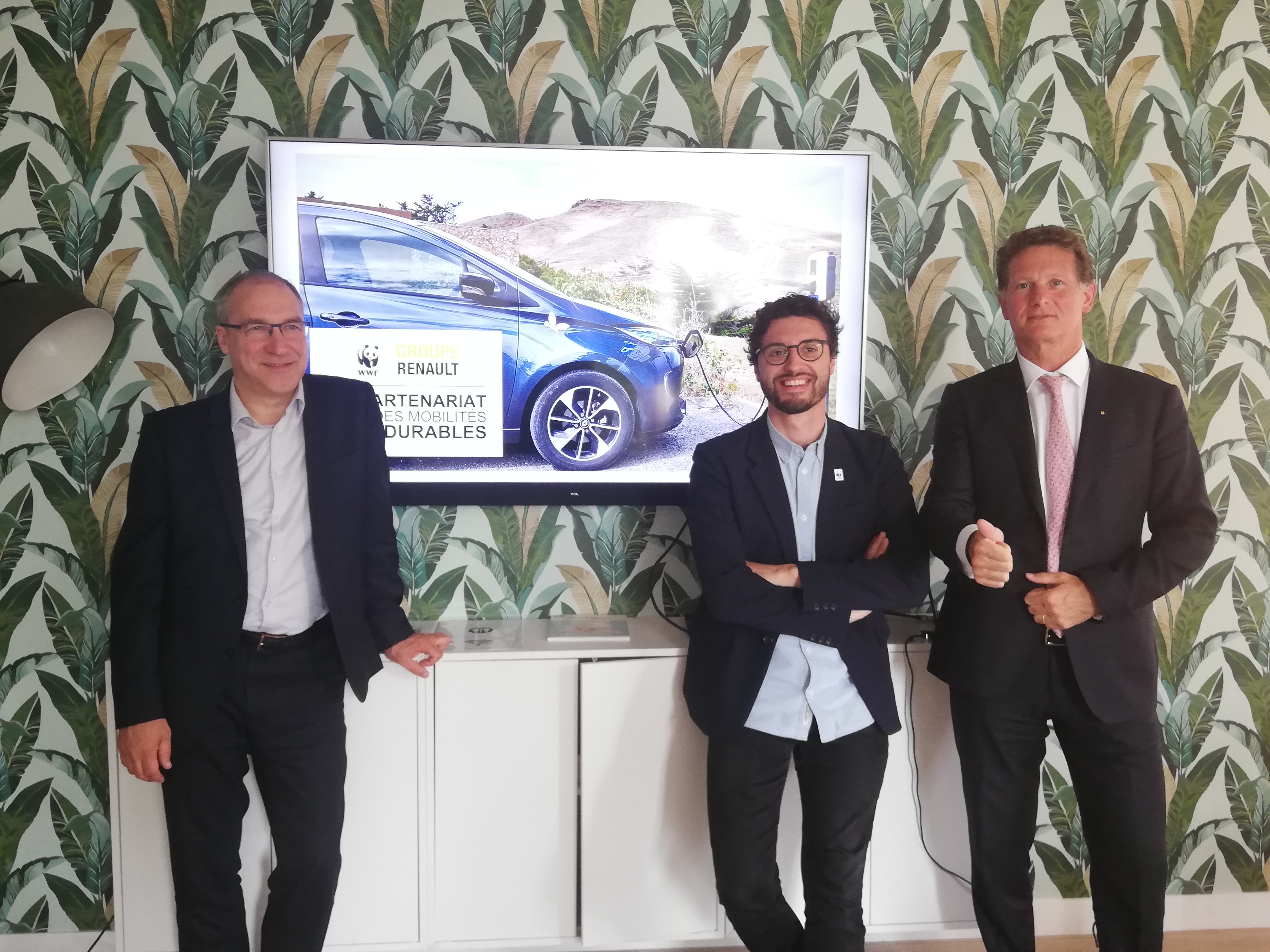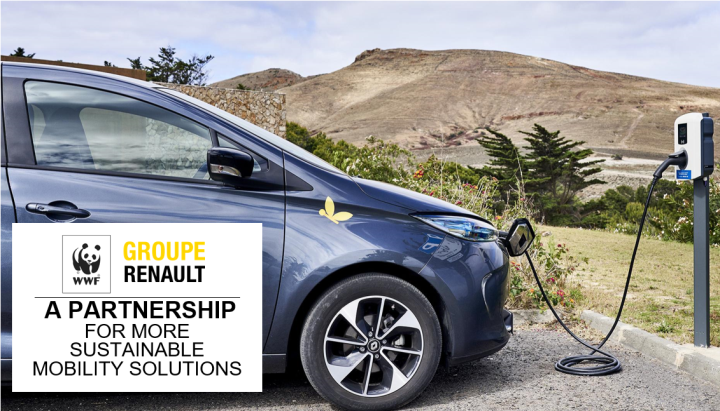Preses relīze

WWF France has been committed for the past three years to accelerating the transition of mobility through its "Avoid, Shift, Improve" paradigm. This vision is driven by its advocacy actions with political decision-makers, by its transformational partnerships with economic actors and by the support of local authorities.
Faced with this joint desire for transformation and the weight of emissions from transport sector, WWF France and Groupe Renault have forged a partnership around a common vision: tomorrow's mobility will be achieved through the transition from the historic model of the private and fossil car to a more sustainable, i. e. more shared mobility - in particular through the deployment of mobility services such as car sharing and carpooling - and more electric mobility, based on renewable energy sources - whose integration is facilitated by the services provided by the batteries of electric vehicles.
As part of this partnership, WWF France and Groupe Renault have conducted a first study on the island of Porto Santo in Portugal in order to test in real life the synergies between the development of electric vehicles and their services to the grid, with the development of renewable energies. In the coming months, they will carry out an analysis of various experiments related to the electric vehicle (smart/reversible charging, stationary storage in second life batteries, multisectoral synergies, etc.), in order to study its best possible integration into electricity production and distribution networks. The objective: to ensure optimal benefits regarding the exploitation of renewable energies and the reduction of greenhouse gas emissions on a territorial scale.
Visi šajā tīmekļa vietnē esošie materiāli (tostarp, bet ne tikai, teksti, fotoattēli, grafikas, skaņas faili, animācijas faili, video faili un to izvietojums vietnē) ir Renault SAS un/vai tās meitasuzņēmumu īpašums vai tādu trešo pušu īpašums, kas ir devušas Renault SAS atļauju lietot tos ierobežotā apjomā, un minētie materiāli ir aizsargāti ar autortiesībām un citiem intelektuālā īpašuma tiesību aktiem. Minēto materiālu izmantošana citiem mērķiem, kas nav saistīti ar žurnālistiku, jo īpaši mārketinga vai reklāmas nolūkiem, ir stingri aizliegta.
 WWF France and Groupe Renault announce a partnership aimed at impl...
WWF France and Groupe Renault announce a partnership aimed at impl...
Visi šajā tīmekļa vietnē esošie materiāli (tostarp, bet ne tikai, teksti, fotoattēli, grafikas, skaņas faili, animācijas faili, video faili un to izvietojums vietnē) ir Renault SAS un/vai tās meitasuzņēmumu īpašums vai tādu trešo pušu īpašums, kas ir devušas Renault SAS atļauju lietot tos ierobežotā apjomā, un minētie materiāli ir aizsargāti ar autortiesībām un citiem intelektuālā īpašuma tiesību aktiem. Minēto materiālu izmantošana citiem mērķiem, kas nav saistīti ar žurnālistiku, jo īpaši mārketinga vai reklāmas nolūkiem, ir stingri aizliegta.